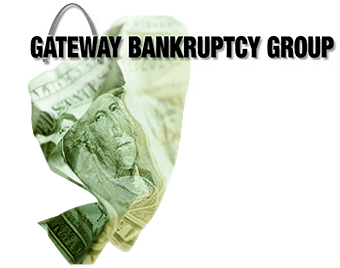What Is Chapter 7 Bankruptcy?
Chapter 7 is known as "straight" bankruptcy or "liquidation." It requires a debtor to give up property that exceeds certain limits called "exemptions," so the property can be sold to pay creditors. Upon conclusion of the case (approximately 3 months), most debts are discharged (canceled). However, there are certain debts that will survive a Chapter 7 discharge, the most common exceptions are certain tax debts, student loans, and support obligations.
What Is Chapter 13 Bankruptcy?
Chapter 13 is called "debt adjustment." It requires a debtor to file a plan to repay all or a portion of the debt from current income over a maximum period of 5 years. Upon completion of the plan, most of the debts are discharged with some exceptions, including student loans and support obligations.
Is There a Difference Between Chapter 7 and Chapter 13 Bankruptcy?
Yes. Chapter 7 Bankruptcy involves selling off some or all of your non-exempt property to pay off your creditors. Under Chapter 13 Bankruptcy, a payment plan is created using your disposable income to pay off some or all debt during a period of 3 to 5 years.

Will Anyone Know That I've Filed for Bankruptcy?
Bankruptcy filings are a matter of public record. However, unless your friends or coworkers search through court records, it’s unlikely anyone will know you filed for bankruptcy protection.

Can I Discharge Medical Bills Under a Bankruptcy Filing?
Medical bills are known as “unsecured debt” and can typically be discharged under a bankruptcy filing. There are some types of debt that cannot be discharged, such as alimony, child support, tax debts, or debts incurred through fraudulent means.
If I File for Bankruptcy, Will I Lose Everything?
No. In many cases, you won’t lose anything. Bankruptcy laws contain exemptions for certain assets such as your home or car, retirement plan, life insurance, and more. If you’re truly concerned about losing any assets, you should consider filing for Chapter 13 Bankruptcy protection, which allows you to keep all your assets, provided you maintain a regular payment schedule.
Is There a Minimum Amount of Debt Required to File Bankruptcy?
No. If your financial situation would be helped by filing for bankruptcy, the law allows you to file.
How Long Does It Take to File?
Depending on your situation, a bankruptcy can be filed within one or two days.
How Much Does It Cost to File?
The total fee to file Chapter 13 starts out at $343. The total fee to file Chapter 7 starts out at $1,035. (Note: every case is unique. The fee may be higher depending on the complexity of the case.)
Can a Debtor Be Fired for Filing Bankruptcy?
No. Bankruptcy laws prohibit discrimination based on a debtor filing for protection under the bankruptcy laws.
Will a Debtor's Employer Find Out About His Bankruptcy?
Under normal circumstances, unless an employer is a creditor, the employer will not know.
Will Bankruptcy Stop a Wage Garnishment?
Yes.
Will Bankruptcy Stop a Judgment?
Yes. Most civil judgments are stopped by bankruptcy.
Will a Bankruptcy Remove a Lien?
Under some circumstances, once the bankruptcy proceedings have started, a special motion can be filed to remove certain liens. However, it takes a Bankruptcy Court order to remove the lien.
Does the Debtor Have to Go to Court?
Generally, no. About 30 to 40 days after filing the bankruptcy petition, the debtor will have to attend a hearing presided over by the bankruptcy trustee. This hearing is called the First Meeting of Creditors and is held in the Federal Building. At this hearing, the trustee will ask questions under oath regarding the content of the bankruptcy papers, assets, debts, and other matters. After the trustee is done, the creditors will be permitted to pose questions to the debtor. In the majority of cases, there will be no creditors present at the hearing.
After this hearing, the debtor will normally not need to return to court. However, if a creditor or trustee files a motion or an adversary action, or the debtor fails to cooperate with the trustee, most likely the debtor will have to return to court.
What Is a Post-Petition Debt?
A post-petition debt is any debt that you incur after your bankruptcy case is filed. For example, emergency room treatment one day after your bankruptcy case is filed would be a post-petition debt. You'll not receive a discharge, and the creditor can collect these debts. See Chapter 13 for ways to deal with post-petition debts.
This information is intended to inform but not provide legal advice. The reader should seek professional advice about specific applications of the information contained herein.
Do you still have questions?
Call today for a FREE
consultation.
618-622-3330
Let us help you with your Chapter 7
or Chapter 13 Bankruptcy filing.
The Answers You Need
Find out how we can help you stop foreclosures, wage garnishments,
and repossessions.
